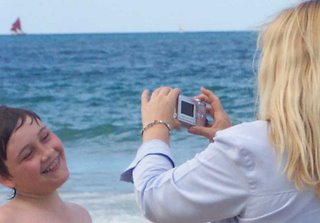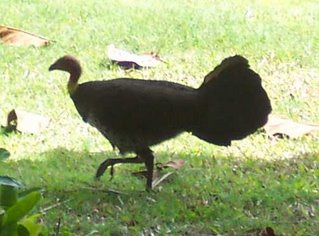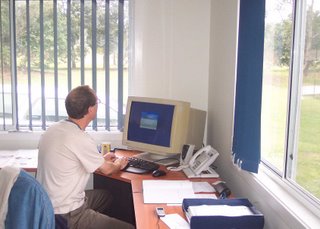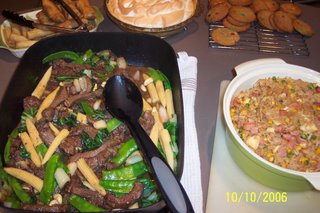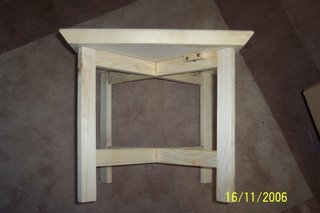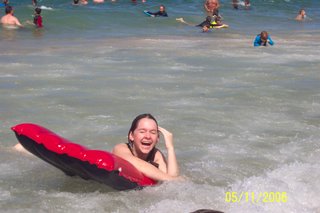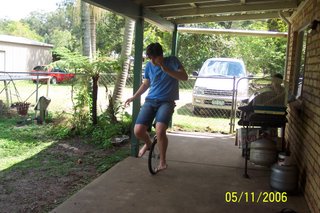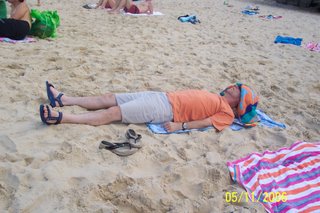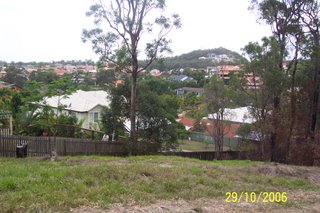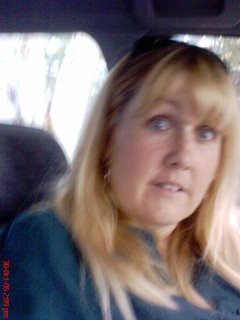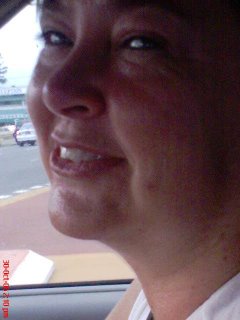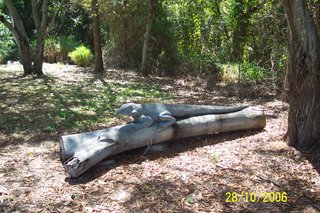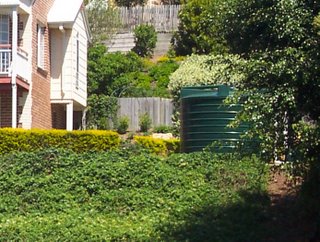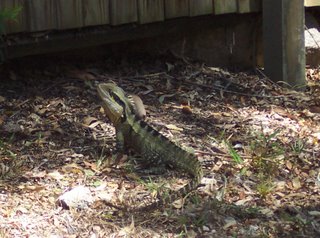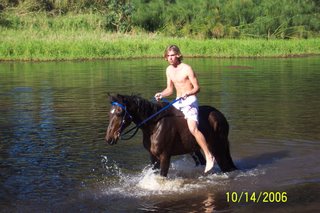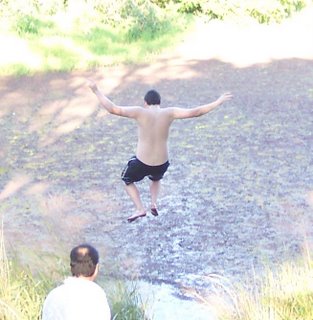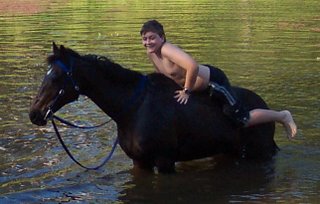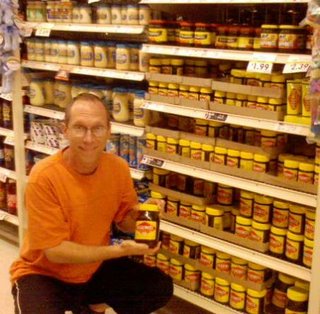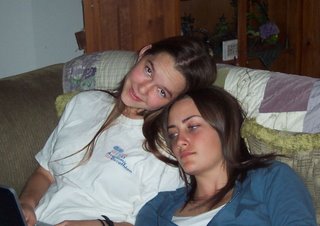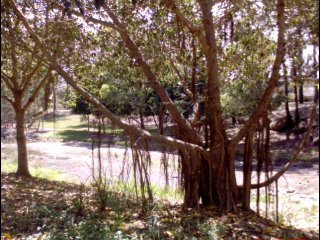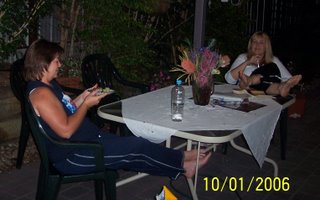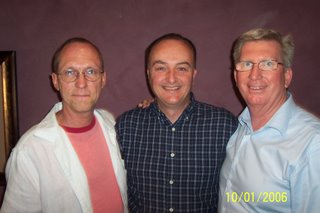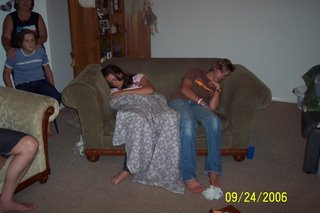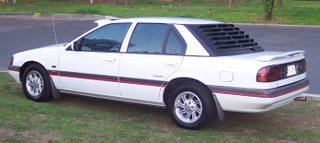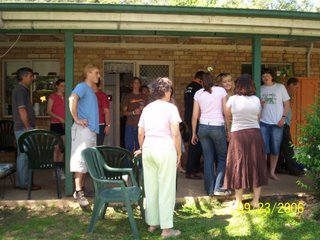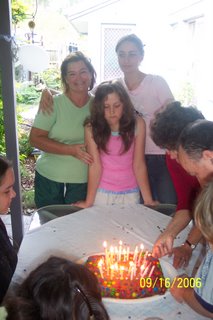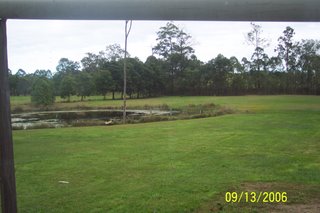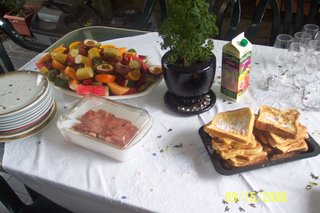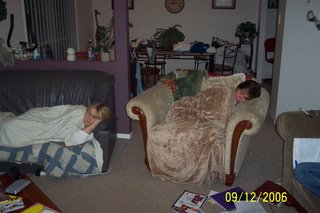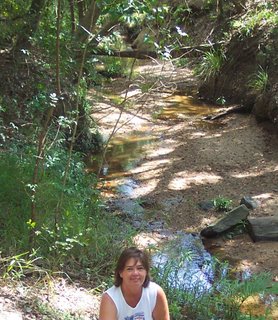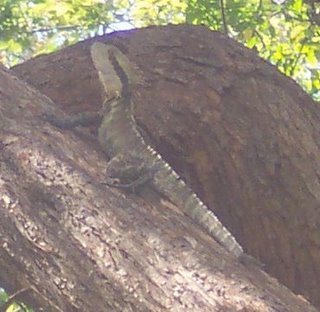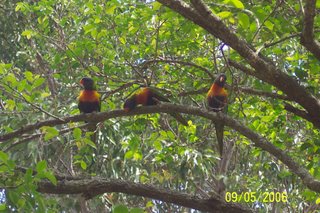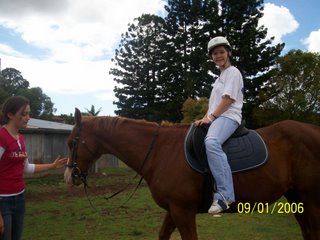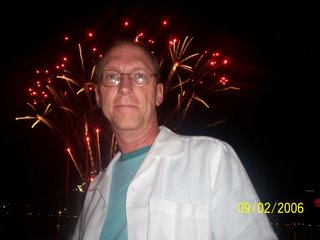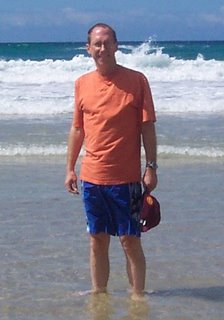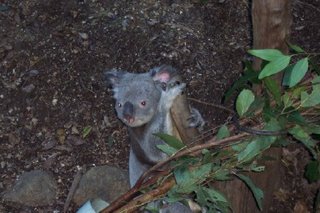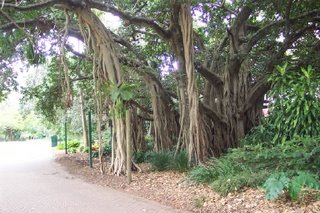I learned on Thursday afternoon, September 1, 2005, from Herb Parsons, my old college roommate, that he and an associate were taking an amphibious vehicle called a duck (actually DUKW) to New Orleans to do search and rescue. Although Herb had originally understood that we were going at the request of Homeland Security, it turned out that we were going uninvited, at the initiative of the owner of the duck.
I got up at 7am on Friday, September 2, got a few last minute things taken care of, and met Herb at the boat at 10:30am. We were expecting a tractor trailer that would haul the duck. It finally arrived at 4:30pm. While we waited, mechanics continued to double check the duck, and we loaded relief supplies on the duck. We left at 5:30pm. Herb, his associate Max Miller and I rode in Max’s pickup truck, which was hauling Max’s fishing boat, just in case we needed it.
Max is in the Coast Guard Auxiliary, and teaches boating safety under the auspices of the Texas Parks and Wildlife Department. He has a Texas Parks and Wildlife insignia on the doors of his pickup truck. Checkpoints on the outskirts of New Orleans served to keep all but essential personnel out. We hoped Max’s connections to the Coast Guard or Texas Parks and Wildlife would get us in.
We drove from Dallas to Alexandria, where the Coast Guard had set up a command center to coordinate their efforts in New Orleans. The “Incident Commander” I think they called him, graciously directed us to a Lt. Commander, who hooked us up with a Lt. Commander in New Orleans, who we were told was working in St. Bernard Parish at a ferry landing, evacuating people.
When we got to New Orleans, at 6am on Saturday, I’d been up for 23 hours. We wanted to hook up with the Lt. Commander and figure out where we were going to be, what we were going to be doing, and who we were going to be doing it with, before unloading the duck and letting the truck driver go. Our problem was that, although the duck could go anywhere, the tractor-trailer rig that was hauling it, and the pickup truck we were in, couldn’t. In addition, we weren’t familiar with the city, and cell phones weren’t working. So we spent a good bit of time trying to find the ferry landing. This was the only point at which I waded bare-legged in rubber “water socks” through the toxic flood waters. I was trying to see how deep a flooded section of I-10 was, to decide whether the tractor-trailer and pickup could drive through it. When it got up above my knees, we decided the pickup, at least, couldn’t do it, and turned around to find a different route. We finally found a different ferry landing guarded by Coast Guardsmen, who told us the Lt. Commander was at FEMA’s command center, and told us where that was. At FEMA, we unloaded the duck and said goodbye to the truck driver. The Lt. Commander directed us to a staging area that was being managed by someone from Louisiana Parks and Wildlife. On the way we stopped at a shopping center parking lot where the Salvation Army was serving hot meals to area residents, and distributed our relief supplies. At the Parks and Wildlife staging area we found a K9 Search & Rescue Unit who told us they were going out with a National Guardsman to a flooded neighborhood near the French Quarter, and they needed an amphibious vehicle like ours. Finally, at 7pm on Saturday, 36 hours after I got out of my own bed at home, we unrolled our sleeping bags and slept on the duck, under the Louisiana sky.
We got up at 6am Sunday morning, drove the duck to, I believe, the Elysian Fields onramp of Interstate Highway 10, which was the staging area for the search and rescue efforts. The three of us, three members of the K9 team, and a National Guardsmen used the onramp as a boat dock and drove off into the neighborhood, sometimes driving on more or less dry streets, and sometimes boating through deeply flooded streets, to houses that the guardsman was directing us with a two-way radio and a GPS unit. We’d go to houses that had people no one else could get to. Other units were doing the same thing we were doing, but with pickup trucks, hummers and motorized rubber rafts. When the water got too shallow or deep for them, they’d radio the position, and we’d pick the people up.
The first trip out made the whole trip look like it might have been a waste of time. We picked up one person who needed to be on a transport helicopter that was waiting for us, so we had to head back to the freeway with just him, then had a flat on the way. We fixed the flat and went back out again, but we were afraid it would be a short adventure if we rescued one person and had one flat each time. By the end of the day, though, we had rescued 67 people in five trips, and didn’t have another flat. It was nightfall by the time we were done. Some of those 67 people were eager to come with us, and some had to be talked into it. Many people didn’t want to go with us. They just waved us on and said they were fine. Some asked when the next boat was coming.
The trip that felt most like we were really rescuing people was the last trip. We picked up 25 people who had congregated at an elementary school. Each person was allowed to bring one bag with them. Men in the group handed bags and toddlers to me from the side of the duck. I sat them all down, lowered the ladder on the back of the boat, and then helped the people up, some of whom were old or sick. Then we received a report of an old lady trapped in an attic 18 blocks away. We apologized to the 25 people we had, knowing they were tired, some of them sick, all of them eager to get back to the freeway where big helicopters would take them to the New Orleans airport, from where busses would take them to refugee centers in other cities and states. They emphatically agreed, though, that we had to go look for the old lady in the attic. We had two different adjoining addresses for her. One of the K9 guys was a former fireman, so he waded through the toxic waste water (in chest waders) to the two houses and broke into them, but didn’t find any evidence of a live person in an attic. We couldn’t know whether she was already gone, or dead, or we had a bad address. When we got back to the freeway and unloaded our passengers, one of them tried to steal a trauma bag that belonged to the K9 unit, but he put it down and apologized when I stopped him. The others had all been wonderful, though. They were caring and considerate of each other, of us, and of the unknown old lady.
Before we loaded up and left the staging area, we saw a couple of body bags with bodies in them, lying on the shoulder of the highway, around where we were all sitting. We asked around and were assured that the bodies were people who had been brought in by other groups, and not anyone we had brought in.
At some point during the day, Herb called his wife, who called around for us and found that the Baton Rouge First Church of the Nazarene had 160 mattresses in their gym, and could offer us a bed, a hot meal and a shower, all of which sounded wonderful after substituting wet wipes for a bath and power bars for a meal. Military MRE’s (Meals Ready to Eat) had been readily available at the staging area, but I never felt like I had time to eat one, and besides, I felt a little guilty eating them, for some reason.
We slept well at the church and headed back out the next morning, Monday, to a new staging area that I think was at exit 2B on Interstate 610. We first went to the wrong end of 610, and then on our way around to the right end, the duck started running hot and rough and the oil pressure dropped to zero, and it started knocking really badly. I had left my cell phone in Dallas so my wife could take work calls for me, since I’d heard that phone service was intermittent or non-existent in New Orleans. Herb had forgotten his that morning, so we wound up having to borrow a phone from some sort of cop or military person who was directing relief vehicles at an intersection. Max wasn’t with us. He was off getting the duck flat fixed. We didn’t have his phone number, so we had to call Herb’s wife Gini, who got hold of Max and told him where we were stranded, and he came and got us. After a few calls from his cell phone, we eventually decided that we weren’t going to be able to fix the duck, so we had to decide whether to go home or find another mission. We eventually wound up arranging to have a truck come pick the duck up to haul it back home to the Dallas-Fort Worth area and left it parked at a nearby fire station, and headed back to the church in Baton Rouge, 70 miles away.
At the church, a relief organization called CitiHope had deposited a large load of relief supplies, and was working on finding places to deliver them where they were needed. On Tuesday we decided to drive the pickup and fishing boat/trailer loaded with relief supplies to a low rent apartment complex near a marina in hard hit Slidell, on the east side of New Orleans. Herb had a boat docked there, and had been in contact with someone at the marina. He had heard that 25 people had been killed at the apartment complex, and that 42 others were still living there in the damaged buildings without power or running water. We loaded up in Baton Rouge, drove to Slidell, unloaded the supplies at the apartment complex, visited with the people for a while, Herb checked out his boat, and we headed back to Baton Rouge.
On Wednesday, the trucker arrived for the duck and we killed most of the day in New Orleans waiting around for him. We eventually got the duck loaded and headed back to Baton Rouge, where we decided to find a Cajun restaurant. The city had doubled in population over the preceding few days, between evacuees and relief workers, so what should have been 30-40 minutes of driving wound up being three hours, and that pretty much wrapped up Wednesday.
By Thursday morning, Gini had been in contact with Herb again and let him know that Crossroads Church of the Nazarene in Gautier, Mississippi was serving as a staging area for the American Red Cross and Nazarene Disaster Response, and that they needed baby formula, baby food, and medical supplies. CitiHope had baby formula, so we took 217 cases of it to Gautier from Baton Rouge. We got back to the Baton Rouge church by early afternoon, tossed our bags in the back of the pickup, and headed home.
Of course, every time we entered or left New Orleans or a staging area or command center, we felt like we had to hold our breath as we went through the check points, because we weren’t part of a government agency, but we always got through, usually just because they saw Max’s Parks and Wildlife insignia on his truck. Herb’s electric bill for his boat slip served as his proof of residency to get us into the Marina and apartment complex in Slidell.
I got home at 1:30am on Friday, September 09, 2005, got up from bed at 8:30 and spent all day today trying to get caught up on my regular job. I’m tired, still trying to get reoriented as to time and space, which didn’t seem to matter in New Orleans, still strangely exhilarated, a little sore, with a badly sunburned bottom lip, but otherwise, none the worse for wear.
It’s my intention to write two more pieces on our Katrina adventure, one on what we saw and one on what I felt. I expect those to be more interesting than this one – at least to me. But, I’m too tired and sleepy to write them tonight.
Brad Mercer
Friday, September 09, 2005
